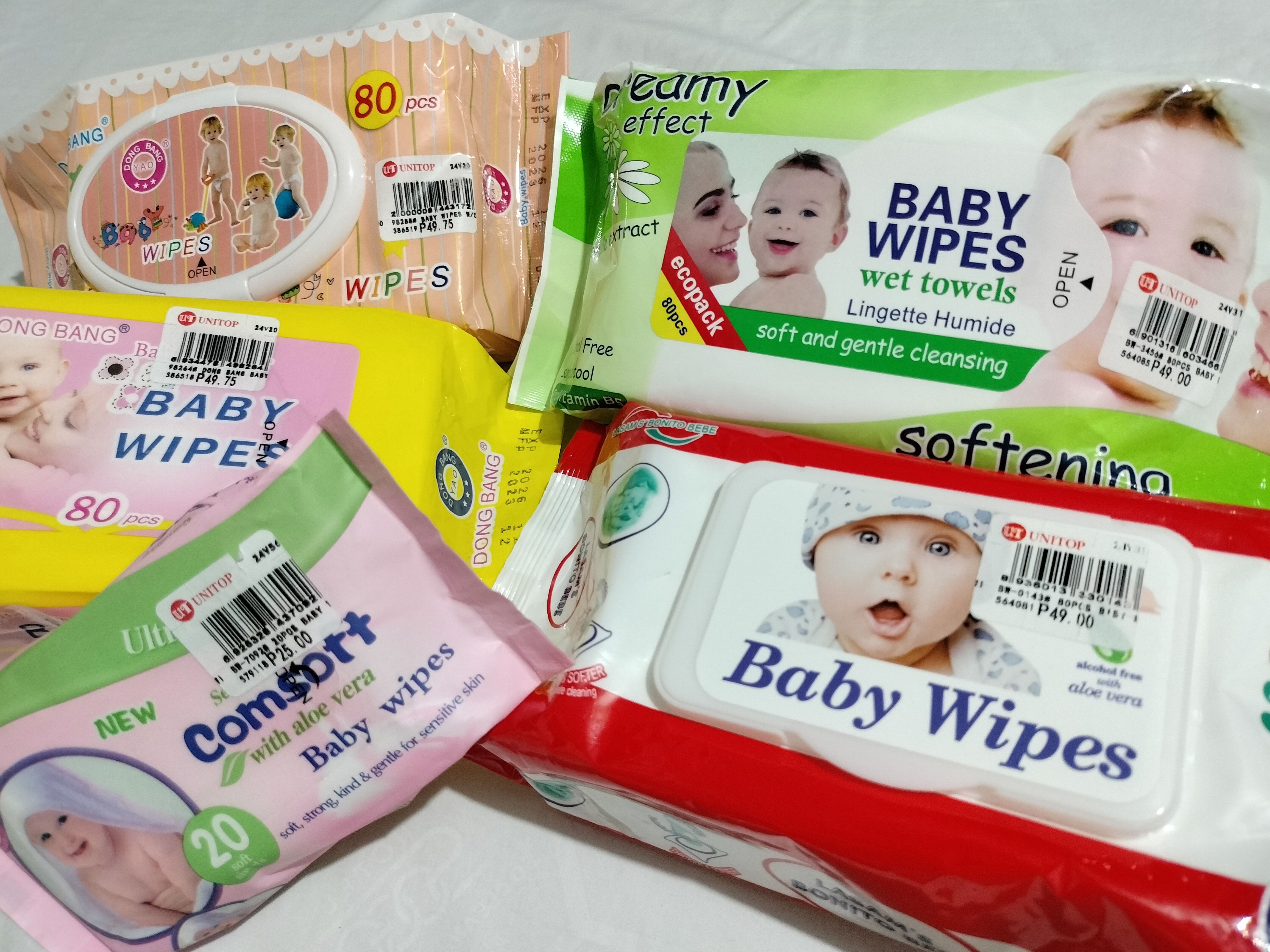EcoWaste warns public of baby wipes containing banned chemicals
By Jel Santos

Toxics watchdog EcoWaste Coalition has issued a warning about the ongoing sale of imported baby wipes containing preservatives that have been banned by the Food and Drug Administration (FDA) due to health risks.
In a statement, group raised concerns after purchasing five unauthorized baby wipe products in Calapan City, Mindoro Oriental, which listed methylchloroisothiazolinone (MCI), methylisothiazolinone (MIT), and isobutylparaben as ingredients.
The said chemicals, per EcoWaste, have been prohibited by the FDA in leave-on cosmetic products since 2018 and 2016 respectively.
MCI and MIT can cause skin redness, itching, and blistering, while isobutylparaben is known as an endocrine-disrupting chemical, the group stated.
Despite the ban, the the toxics watchdog said it found these substances in products sold at a popular chain store.
During test buys on May 25, the EcoWaste said it identified four products containing MCI/MIT (two variants of Dong Bang Baby Wipes, Lasam’s Bonito Bebe Baby Wipes, and Baby Wipes Wet Towels) and one product containing isobutylparaben (Sensitive Comsoft Baby with Aloe Vera Wipes).
It added that Sensitive Comsoft Baby also contained butylparaben and propylparaben, which are restricted in products for children under three.
The group said the wipes, primarily labeled as "made in China," were priced between P25 and P49.75 per pack and were recently manufactured, indicating they are not old stock.
According to World Health Organization (WHO), MCI/MIT can cause contact dermatitis, a condition marked by skin redness, itching, and blistering. These chemicals are banned in leave-on cosmetics in both the ASEAN and European regions.
The EcoWaste advised parents to avoid wipes containing MCI/MIT and banned parabens, use alternatives like lukewarm water and mild soap, and ensure wipes are alcohol-free and unscented.
They also recommended rinsing the skin after using wipes to reduce chemical residue, the group said.
Consumers were urged to dispose of used wipes properly to avoid environmental contamination and blockages.
As such, EcoWaste has called on manufacturers, importers, distributors, and retailers to ensure that products containing banned ingredients are not sold to the public, emphasizing their corporate social responsibility.